Hidden Costs of Relocating for Physicians & How to Budget
Relocating as a physician is an exciting milestone, whether you’re transitioning from residency to your first attending job, moving for a better opportunity, or preparing for retirement. But beyond the obvious expenses like moving trucks and new housing, there are hidden costs that can quickly add up—sometimes totaling thousands of dollars if not properly planned for.
To help you budget effectively and avoid surprises, we’re breaking down the hidden costs of physician relocation and how to financially prepare for a smooth transition.
🔍 The Hidden Costs of Relocating for Physicians
1️⃣ Temporary Housing Costs
Physicians often need short-term housing before settling into a permanent home—whether it’s waiting for hospital credentialing, closing on a house, or finding the right neighborhood.
💰 Unexpected Costs:
• Hotel or extended-stay apartment rentals ($1,500 – $5,000/month)
• Short-term lease premiums (higher rent for flexibility)
• Furnishing costs (if your new home isn’t ready)
✅ Budget Tip:
🔹 Ask if your new employer provides relocation stipends that cover temporary housing.
🔹 Consider corporate housing options for physicians relocating on short notice.
2️⃣ Licensing & Credentialing Fees
Every state has different licensing requirements, and if you’re moving across state lines, you’ll need to budget for medical license transfers, DEA registration, and board certifications.
💰 Unexpected Costs:
• State Medical License Fees ($300 – $1,000+)
• DEA Registration Transfer ($888)
• Board Certification Transfer Fees ($200 – $600)
• Federation Credentials Verification (FCVS) (~$375+)
✅ Budget Tip:
🔹 Check if your new hospital/practice reimburses licensing fees.
🔹 Apply for licensing early to avoid last-minute rush fees.
3️⃣ Home Buying & Selling Expenses
If you’re purchasing or selling a home, unexpected costs can appear, even with a physician mortgage loan.
💰 Unexpected Costs:
• Closing Costs (1-3% of home price)
• Inspection & Appraisal Fees ($500 – $1,500)
• HOA Fees & Property Taxes (varies by location)
• Selling Your Current Home (agent commissions, repairs, staging)
✅ Budget Tip:
🔹 Work with a realtor who specializes in physician relocations to negotiate better deals.
🔹 Consider a physician mortgage loan to reduce upfront costs.
4️⃣ Moving & Transportation Expenses
Physicians often assume that moving costs are limited to hiring a truck, but there are hidden fees in the process.
💰 Unexpected Costs:
• Professional Movers & Storage Fees ($3,000 – $10,000)
• Auto Shipping (if moving long-distance, $1,000+ per car)
• Utility Setup & Deposits ($200 – $500)
• Pet Relocation Fees (boarding, travel, new vet costs)
✅ Budget Tip:
🔹 If your employer offers relocation reimbursement, clarify what’s covered.
🔹 Compare DIY moving vs. full-service movers to find the most cost-effective solution.
5️⃣ Cost of Living Differences
Moving to a new city may come with unexpected cost-of-living changes, even if your salary is higher.
💰 Unexpected Costs:
• Higher State Income Taxes (e.g., California vs. Texas)
• Increased Housing Costs (especially in physician-dense metro areas)
• Childcare & School Tuition Differences
✅ Budget Tip:
🔹 Research cost-of-living calculators before committing to a location.
🔹 Negotiate salary increases to offset higher living expenses.
6️⃣ Family & Spouse Career Adjustments
If you’re relocating with a spouse or family, consider their job transition, childcare, and education costs.
💰 Unexpected Costs:
• Lost income if a spouse leaves their job
• Daycare or school enrollment fees
• Transportation & commute changes
✅ Budget Tip:
🔹 Some hospitals offer spousal job placement assistance—ask about available resources.
🔹 Plan childcare & school visits ahead of the move to avoid last-minute expenses.
📊 How to Budget for a Physician Relocation
✅ Step 1: Estimate ALL Costs Upfront
Create a detailed relocation budget, including:
📌 Housing (temporary & permanent)
📌 Moving & transportation (movers, travel, storage)
📌 Licensing & credentialing
📌 Cost of living adjustments
📌 Spouse & family expenses
✅ Step 2: Check for Employer or Hospital Reimbursements
Many hospitals, private practices, and academic centers offer relocation stipends ranging from $5,000 – $20,000.
🔹 Ask your employer which expenses are covered (housing, licensing, moving, etc.).
🔹 Submit receipts for reimbursement—don’t leave money on the table!
✅ Step 3: Set Aside an Emergency Fund
Even with careful planning, unexpected costs pop up. Have at least $5,000 – $10,000 in cash savings for emergencies.
✅ Step 4: Work with Relocation Experts
Physicians have unique relocation challenges. MD Match connects doctors with trusted realtors, lenders, and financial advisors who specialize in physician relocations.
📩 Need a stress-free move? Get matched with an expert today!
🚀 Ready to Relocate? Let MD Match Help!
🔹 Find a physician-friendly realtor & lender
🔹 Get expert financial guidance for your move
🔹 Save time & money with physician-specific relocation support
📩 Start your relocation journey today—contact MD Match!


